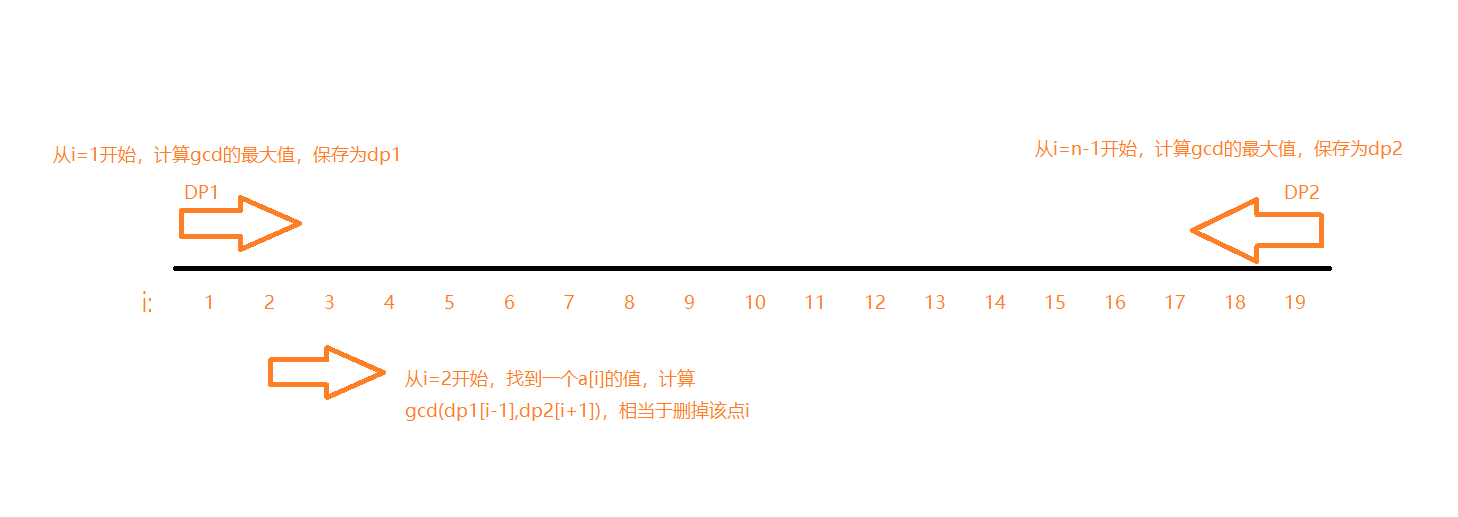Do you know what is called ``Coprime Sequence''? That is a sequence consists of nnpositive integers, and the GCD (Greatest Common Divisor) of them is equal to 1.
``Coprime Sequence'' is easy to find because of its restriction. But we can try to maximize the GCD of these integers by removing exactly one integer. Now given a sequence, please maximize the GCD of its elements.
``Coprime Sequence'' is easy to find because of its restriction. But we can try to maximize the GCD of these integers by removing exactly one integer. Now given a sequence, please maximize the GCD of its elements.
InputThe first line of the input contains an integer T(1≤T≤10)T(1≤T≤10), denoting the number of test cases.
In each test case, there is an integer n(3≤n≤100000)n(3≤n≤100000) in the first line, denoting the number of integers in the sequence.
Then the following line consists of nn integers a1,a2,...,an(1≤ai≤109)a1,a2,...,an(1≤ai≤109), denoting the elements in the sequence.OutputFor each test case, print a single line containing a single integer, denoting the maximum GCD.Sample Input
3 3 1 1 1 5 2 2 2 3 2 4 1 2 4 8
Sample Output
1 2 2

#include<iostream>
#include<cstdio>
#include<cstring>
#include<string>
#include<algorithm>
#include<cmath>
#include<utility>
#include<set>
#include<vector>
#include<map>
#include<queue>
#include<stack>
#define maxn 110
#define INF 0x3f3f3f3f
#define LL long long
#define ULL unsigned long long
#define E 1e-8
#define mod 100000000
using namespace std;
#define raf(i,k,n) for(int i=k;i<=n;i++)
//Oo0Oooo00ooOoo00oO
int gcd(int a,int b)
{
return b==0?a:gcd(b,a%b);
}
int a[100005];
int dp1[100005],dp2[100005];
int main()
{
int t;
cin>>t;
while(t--)
{
int n;
cin>>n;
for(int i = 0 ; i < n ; i++ ) cin>>a[i];
dp1[0] = a[0];
for(int i = 1 ; i < n ; i++ ) dp1[i] = gcd(dp1[i-1],a[i]);
dp2[n-1] = a[n-1];
for(int i = n-2 ; i >= 0 ; i--) dp2[i] = gcd(dp2[i+1],a[i]);
int ma = max(dp2[1],dp1[n-2]);
//cout<<"dp2 "<<dp2[n-2];
for(int i=1;i<n-1;i++)
ma = max(gcd(dp1[i-1] , dp2[i+1] ), ma);
cout<<ma<<endl;
}
return 0;
}